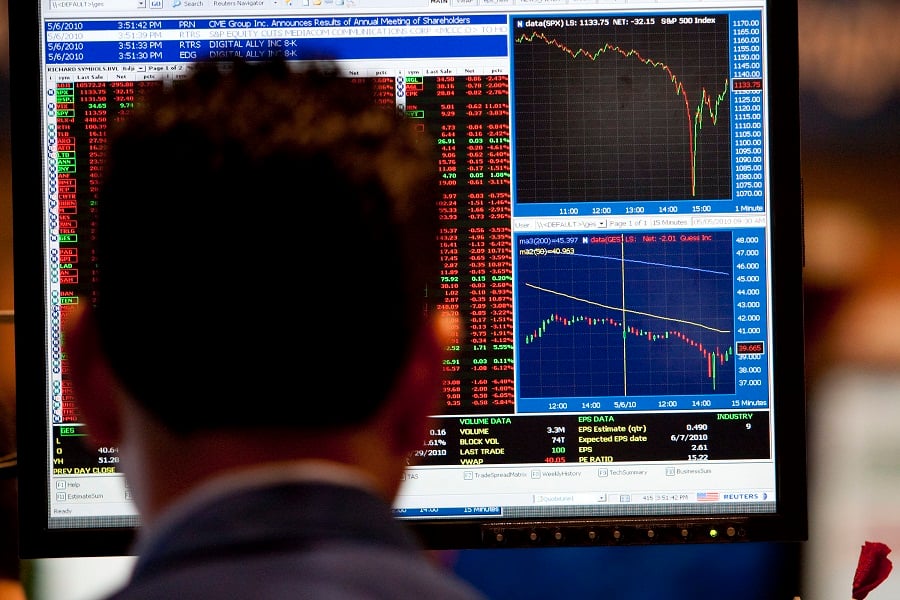

 SAUDI ARABIA, IRAN
Escalating tensions between Saudi Arabia and Iran are also adding to worries Monday, according to Robert W. Baird & Co.'s Patrick Spencer. “Middle Eastern concern and the escalation compounded by further issues in China are all adding to short-term weakness,” said Mr. Spencer, equities vice chairman at Baird in London. “The outlook still looks reasonable and I would take any weakness to selectively buy, especially in the consumer and housing market recovery area.”
The Middle East, more so than the situation in China, is the “really threatening wild card” for the market, according to Neal Solomon, managing director at WealthPro.
“This is a geopolitical story that can potentially go in any direction,” Mr. Solomon said. “If there's something that keeps me up at night which we can't predict with any kind of precision, that's what it is.”
Focus will turn toward a swath of economic reports this week, including data on factory activity, the monthly jobs report and minutes from the Federal Reserve's meeting that ended with the first rate increase since 2006.
A gauge today showed manufacturing in the U.S. contracted in December at the fastest pace in more than six years as factories, hobbled by sluggish global growth, cut staff at the end of 2015. The Institute for Supply Management's index declined to 48.2, the weakest since June 2009, from 48.6 a month earlier, according to the Tempe, Arizona-based group's report. Readings lower than 50 indicate contraction. The median forecast in a Bloomberg survey of economists was 49.
With additional reporting by Greg Iacurci.
SAUDI ARABIA, IRAN
Escalating tensions between Saudi Arabia and Iran are also adding to worries Monday, according to Robert W. Baird & Co.'s Patrick Spencer. “Middle Eastern concern and the escalation compounded by further issues in China are all adding to short-term weakness,” said Mr. Spencer, equities vice chairman at Baird in London. “The outlook still looks reasonable and I would take any weakness to selectively buy, especially in the consumer and housing market recovery area.”
The Middle East, more so than the situation in China, is the “really threatening wild card” for the market, according to Neal Solomon, managing director at WealthPro.
“This is a geopolitical story that can potentially go in any direction,” Mr. Solomon said. “If there's something that keeps me up at night which we can't predict with any kind of precision, that's what it is.”
Focus will turn toward a swath of economic reports this week, including data on factory activity, the monthly jobs report and minutes from the Federal Reserve's meeting that ended with the first rate increase since 2006.
A gauge today showed manufacturing in the U.S. contracted in December at the fastest pace in more than six years as factories, hobbled by sluggish global growth, cut staff at the end of 2015. The Institute for Supply Management's index declined to 48.2, the weakest since June 2009, from 48.6 a month earlier, according to the Tempe, Arizona-based group's report. Readings lower than 50 indicate contraction. The median forecast in a Bloomberg survey of economists was 49.
With additional reporting by Greg Iacurci.

Rajesh Markan earlier this year pleaded guilty to one count of criminal fraud related to his sale of fake investments to 10 clients totaling $2.9 million.

From building trust to steering through emotions and responding to client challenges, new advisors need human skills to shape the future of the advice industry.

"The outcome is correct, but it's disappointing that FINRA had ample opportunity to investigate the merits of clients' allegations in these claims, including the testimony in the three investor arbitrations with hearings," Jeff Erez, a plaintiff's attorney representing a large portion of the Stifel clients, said.

Chair also praised the passage of stablecoin legislation this week.

Maridea Wealth Management's deal in Chicago, Illinois is its first after securing a strategic investment in April.
Orion's Tom Wilson on delivering coordinated, high-touch service in a world where returns alone no longer set you apart.
Barely a decade old, registered index-linked annuities have quickly surged in popularity, thanks to their unique blend of protection and growth potential—an appealing option for investors looking to chart a steadier course through today's choppy market waters, says Myles Lambert, Brighthouse Financial.
